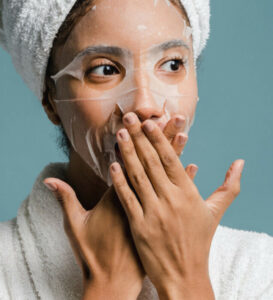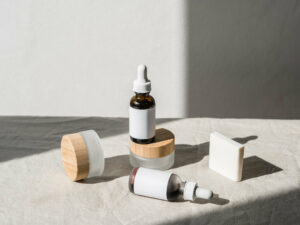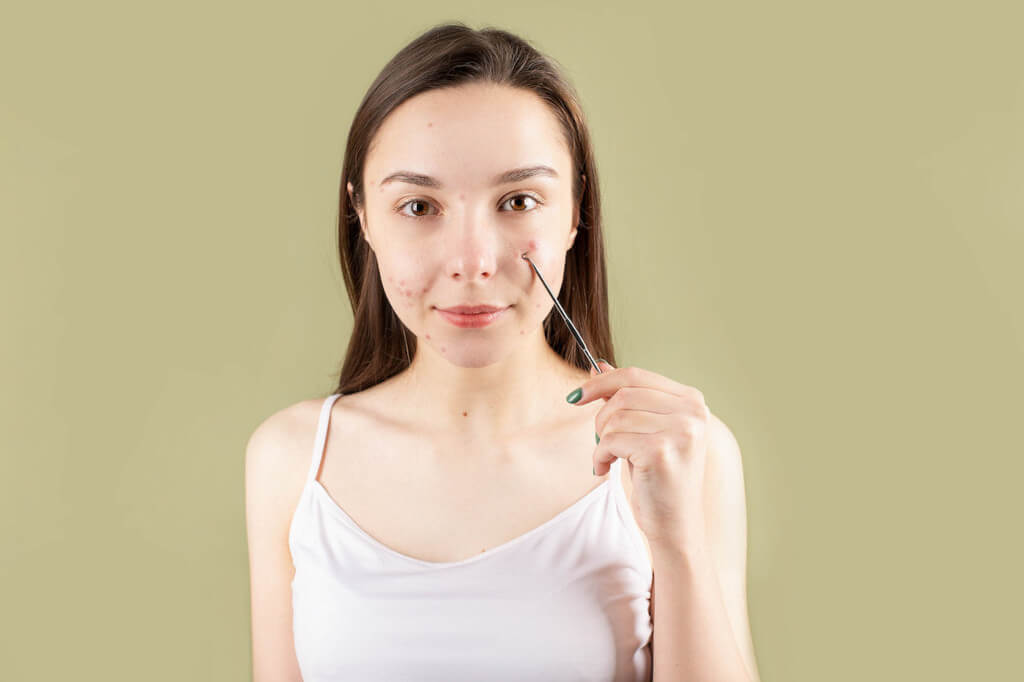
Where Can I Find Acne Treatments?
You can easily cover up the odd zit. Cosmetics and concealers purchased at a drugstore should be water-based if used at all. Standard acne treatment can reduce acne symptoms even if it cannot eliminate breakouts.
The most effective therapies either block male hormones in the skin, reduce the production of sebum, restrict the growth of bacteria, or induce the peeling of skin cells to clear pores. Acne patients should exercise caution while attempting new treatments because of the potential for negative effects from many of them. Breakouts that leave scars or are severe and persistent require the attention of a dermatologist, as do milder forms of acne that nonetheless cause emotional distress.
Acne Medication Without Prescriptions
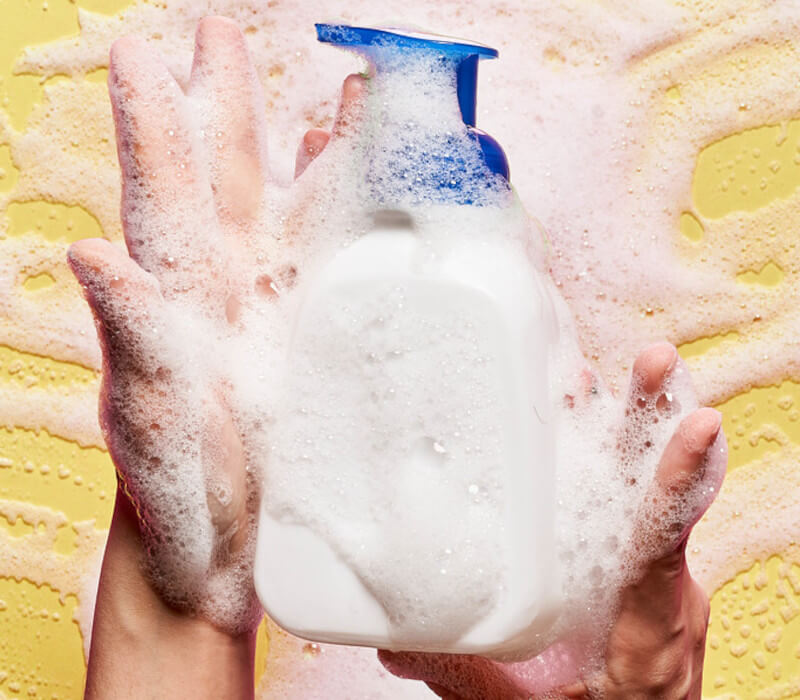
Water and Soap
Acne can be helped by gentle cleaning with water and soap no more than twice a day. Acne that already exists will not be cured by this. Scrubbing too harshly might cause damage to the skin and lead to additional issues.
Cleansers
To combat acne, numerous different types of soaps and cleansers have been marketed. Benzoyl peroxide, glycolic, salicylic, and sulfur are common ingredients.
Prescription Medication For Acne Treatment
Benzoyl Peroxide
Treatments with benzoyl peroxide-containing over-the-counter medicine may be tried for mild acne, or it may be recommended by your doctor. Researchers think that this chemical eliminates acne-causing microorganisms. Consistent use over a minimum of four weeks is recommended for the best results in controlling acne.
In the same manner that acne returns when you stop using numerous OTC and prescription treatments, this one does not alter the production of sebum or the way that skin follicle cells are lost. There are many different formulations to choose from, including gels, balms, creams, cleansers, foaming agents, and cleansing pads. Be careful when using benzoyl peroxide because it has the potential to dry the skin and bleach the clothes. You may want to wear an old shirt to sleep if you plan on sleeping with it on your back or chest.
Aspirin-like Acid (Also Known as Salicylic Acid)
When applied topically, salicylic acid helps regulate the skin’s natural cell turnover rate. In cases of less severe acne, salicylic acid can be used to unclog pores, thereby reducing the severity of the condition and preventing future outbreaks. Both sebum production and bacterial growth are unaffected. Similarly to benzoyl peroxide, it has to be used consistently since if you stop, your pores will once again become clogged and your acne will reappear. Numerous topical acne treatments, such as lotions, creams, and pads, contain salicylic acid.
Sulfur
Several over-the-counter acne treatments use sulfur in addition to other ingredients including ethanol, sodium sulfacetamide (a prescription medicine), and salicylic acid. For reasons including its pungent odor and short-lived skin discoloration, it is rarely used alone. Sulfur prevents pores from becoming clogged and stops bacteria from multiplying. However, the advantages are small and unlikely to be used.
Applying a Retinol Cream or Gel Topically
The use of retinol can prevent the development of acne. It slows down cell division, leading to a higher rate of cell turnover that can be used to clear up clogged pores. Because it targets blemishes that have already begun to form under the skin, your acne might seem to worsen before it improves. Consistent use is required, and it could take 8-12 weeks before you see any improvements. Prescriptions were once required to purchase retinoids. Only Differin Gel, a topical retinoid, is available without a prescription for treating acne.
Alcohol and Acetone
Both alcohol and acetone have antibacterial and oil-removing properties. Several over-the-counter acne medications incorporate these elements. Dermatologists typically advise against the use of these products since they dehydrate the skin and have minimal effect on acne.
Antibiotics
One can apply antibiotic creams to the skin directly (topical) or take oral antibiotics (systemic). Acne antibiotics eliminate acne-causing germs and reduce inflammation. Lotions, gels, liquids, pads, foaming agents, and moisturizers are just some of the forms in which topical products can be found. Click here for more information. Whereas topical antibiotics can only go so deep into the skin to clean up superficial acne, systemic antibiotics can travel via the bloodstream and into the sebaceous glands to treat the source of the problem.
Systemic antibiotics, which can be used to treat more extreme forms of acne, are associated with more adverse effects, however, than topical antibiotics. Antibiotic tolerance in bacteria is one reason why topical antibiotics are not typically prescribed as the sole remedy for breakouts. While antibiotic tolerance is a real concern, utilizing benzoyl peroxide in conjunction with an ointment antibiotic may mitigate this risk.
Allow Therapy for Acne for a Minimum 4 Weeks to Take Effect
It may seem like a good idea to try a new acne treatment every few days, but doing so can make your acne worse. There is no quick fix for acne. Another factor that might aggravate your skin and lead to fresh breakouts is switching products too frequently. You should start to feel better after four to six weeks of a given treatment. To see clearing, it may take 2 to 3 months or longer. If the treatment is working, continue using it. If your acne is clearing up, that doesn’t mean you should stop treating it. There will be fewer new outbreaks if this is done.
Pharmaceuticals That Are Natural, Organic, or Derived From Herbs
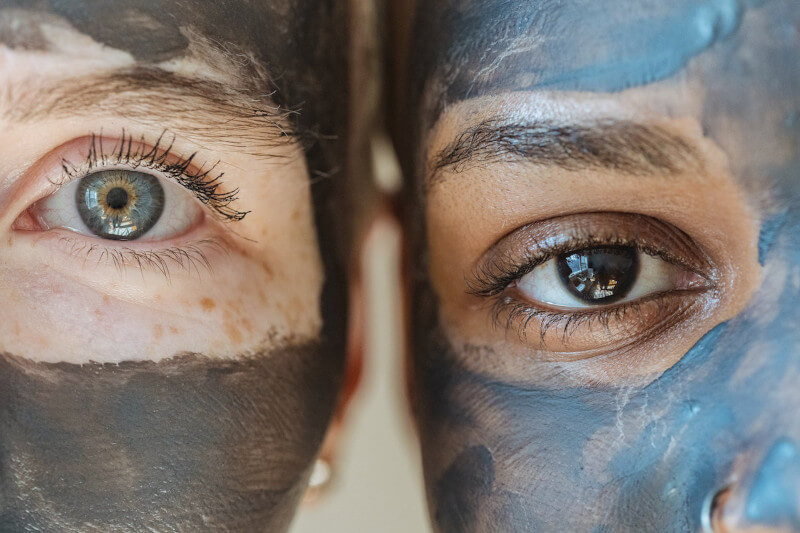
Acne can be treated or avoided using any number of herbal, organic, or all-natural remedies currently on the market. These medicines aren’t efficient, so it’s improbable that they’ll provide much help.
A heated towel applied for a few minutes can help pus-filled pimples explode on their own. Only a medical professional, armed with proper surgical equipment and antiseptic protocols, should pop an inflamed zit. Picking at your acne could cause it to get inflamed and even cause scarring if you do it too often.
You must Listen to the Instructions
Although it may appear simple to apply an acne treatment, the amount and frequency with which you apply it can have a significant impact on the effectiveness of the therapy. Make sure you stick to the guidelines. If a dermatologist drafted your plan of care, make sure to use everything prescribed. If you still have acne after using the therapy your dermatologist recommends, you may have only used a fraction of the recommended amount.
Your Face Should Be Washed Twice a Day and Each Time You Perspire Heavily
The skin of someone prone to acne is especially delicate. More frequent washings than recommended can aggravate acne by drying out the skin. Dermatologists advise that you cleanse your face when:
- Start your day off right by
- Are Tired and Prepared for Bed
- Make your face sweat
Facial as Well as Other Acne-prone Skin Shouldn’t Be Scrubbed
You might want to give your skin a good scrubbing if it feels greasy, unclean, or grimy. Don’t! Exfoliation can aggravate already-problematic skin, making acne worse.
Make Sure You’re Using Acne-free Makeup and Products for Skin Care
This merchandise has proper labels. All or some of the following may appear on the packaging.
- No pore clogging
- Non-comedogenic
- No Oil, So It Won’t Cause Acne
Some individuals might experience breakouts after using these skincare products, therefore you might have to experiment to find one that works for you.
You Shouldn’t Touch, Pick at, or Pop Your Zits
Although breaking a zit may appear to be a quick fix, it often makes the problem worse. It is possible to aggravate acne by touching, picking, or popping it.
Make Sure to Apply Acne Medicine to All Oily Areas of the Skin, Not Just the Spots
The application of a thin layer to acne-prone skin aids in the treatment of current acne and the prevention of future breakouts.
Seek the Advice of a Dermatologist
Consult a physician if these remedies have not helped clear up your acne. Almost any instance of acne can now be cured with the help of modern acne therapies and a skilled dermatologist. They can personalize a treatment program for you. If you’ve learned what causes acne and what can help clean it up, what steps will you take to improve your skin?

